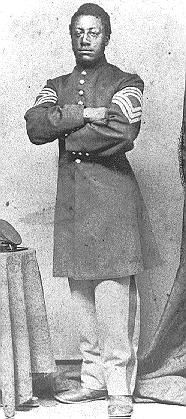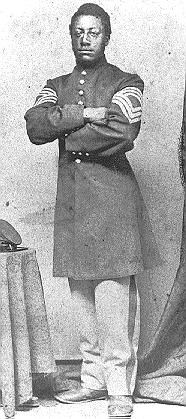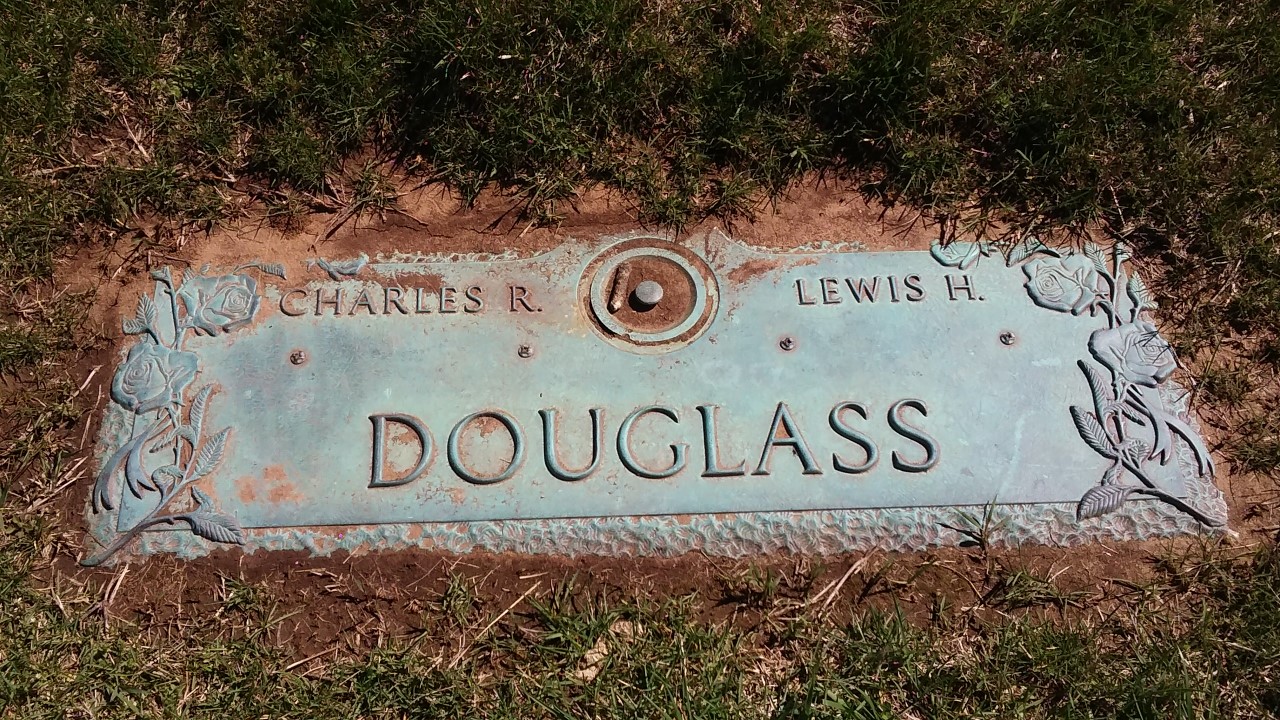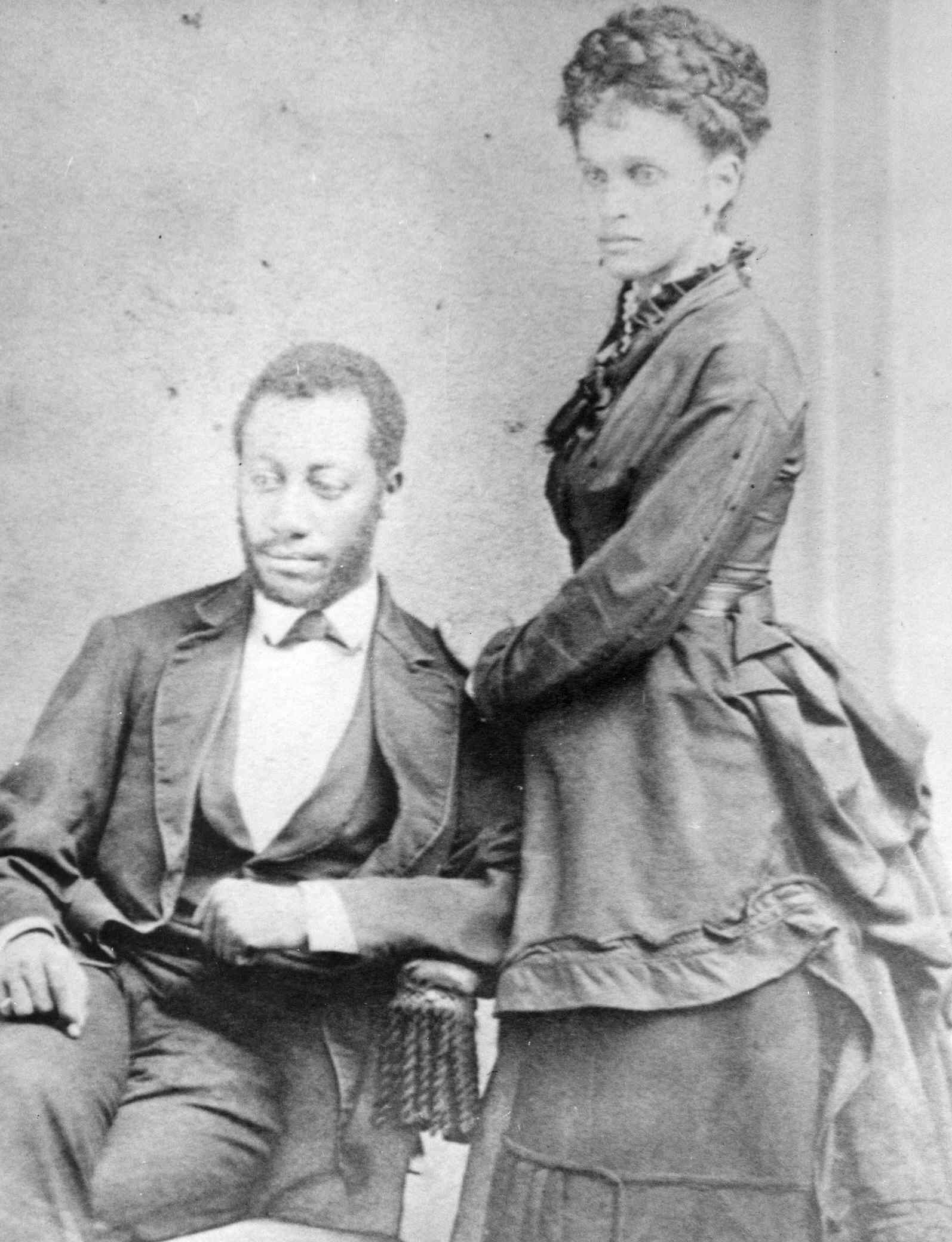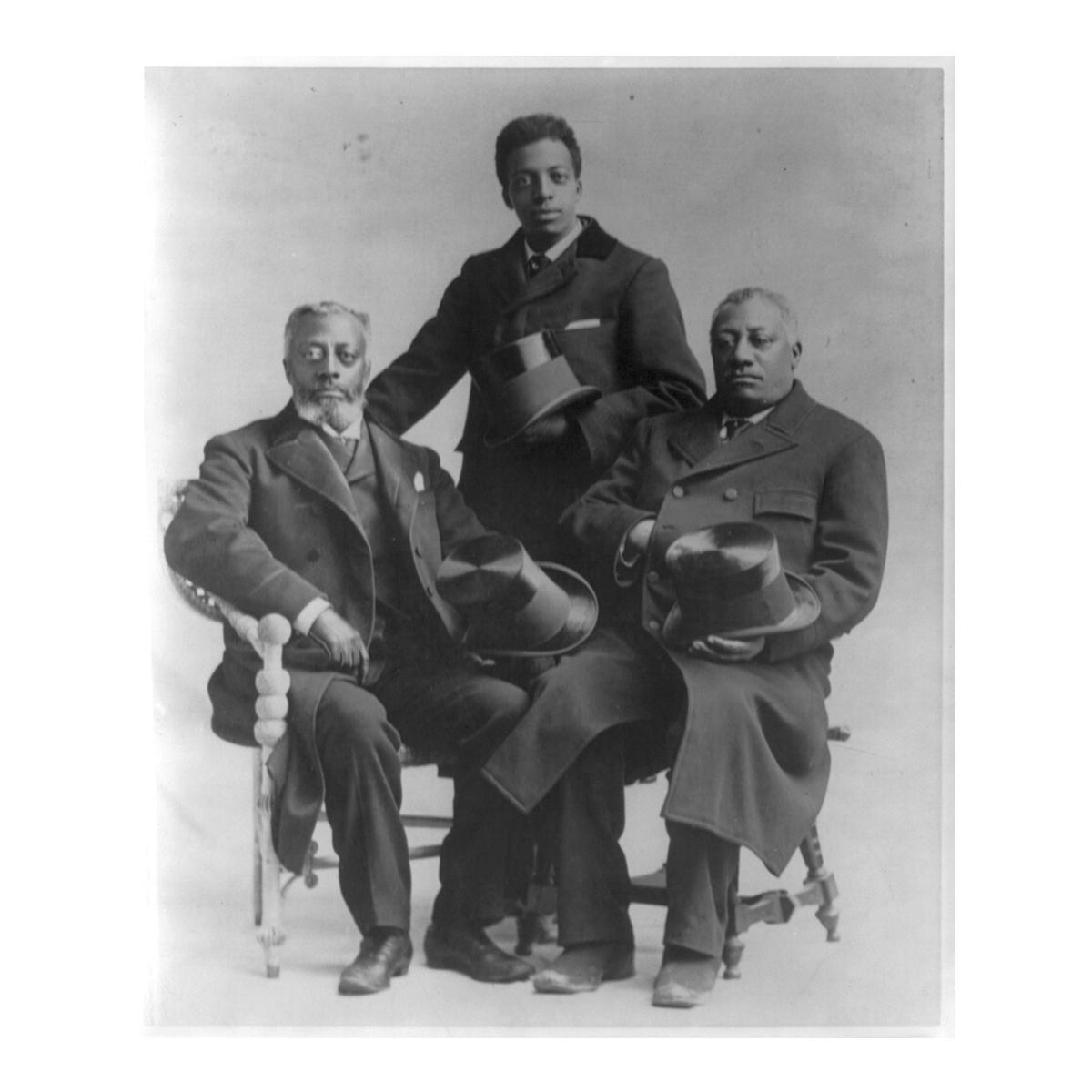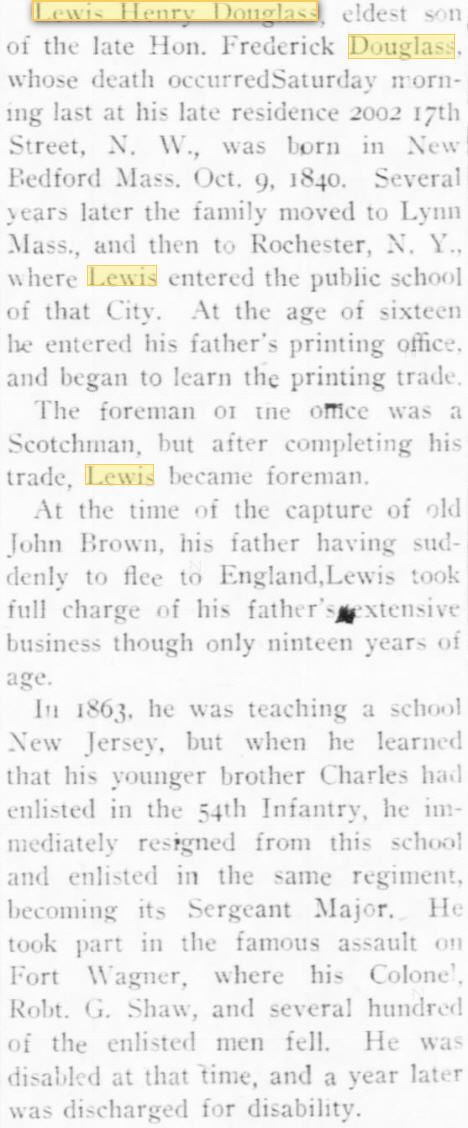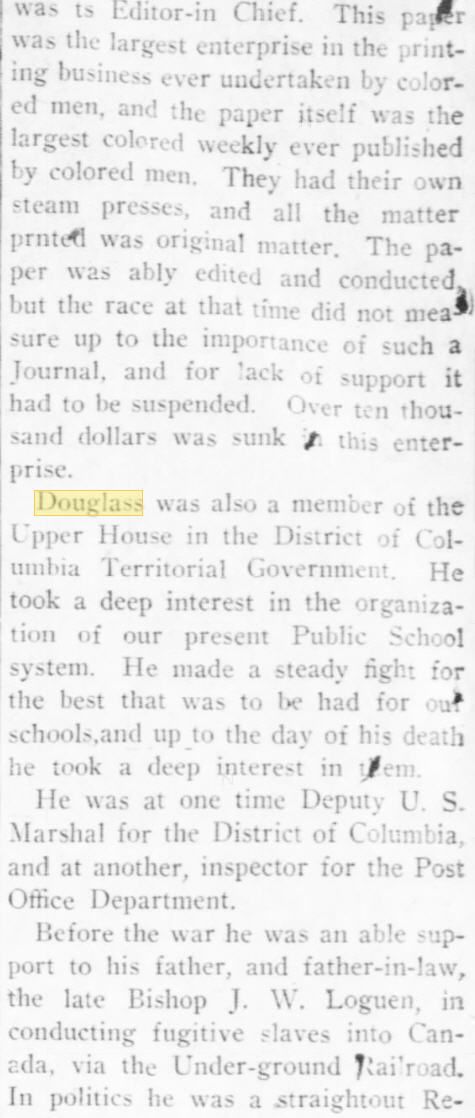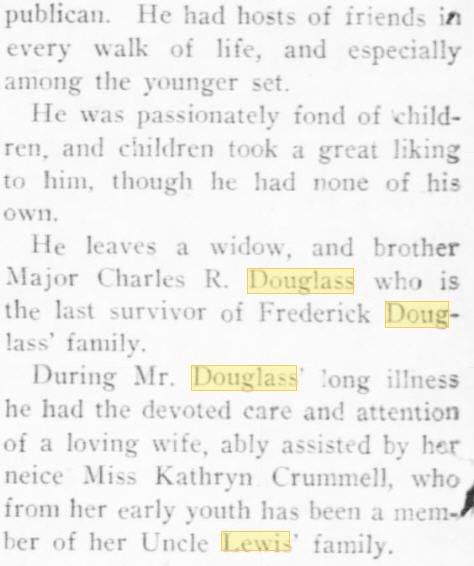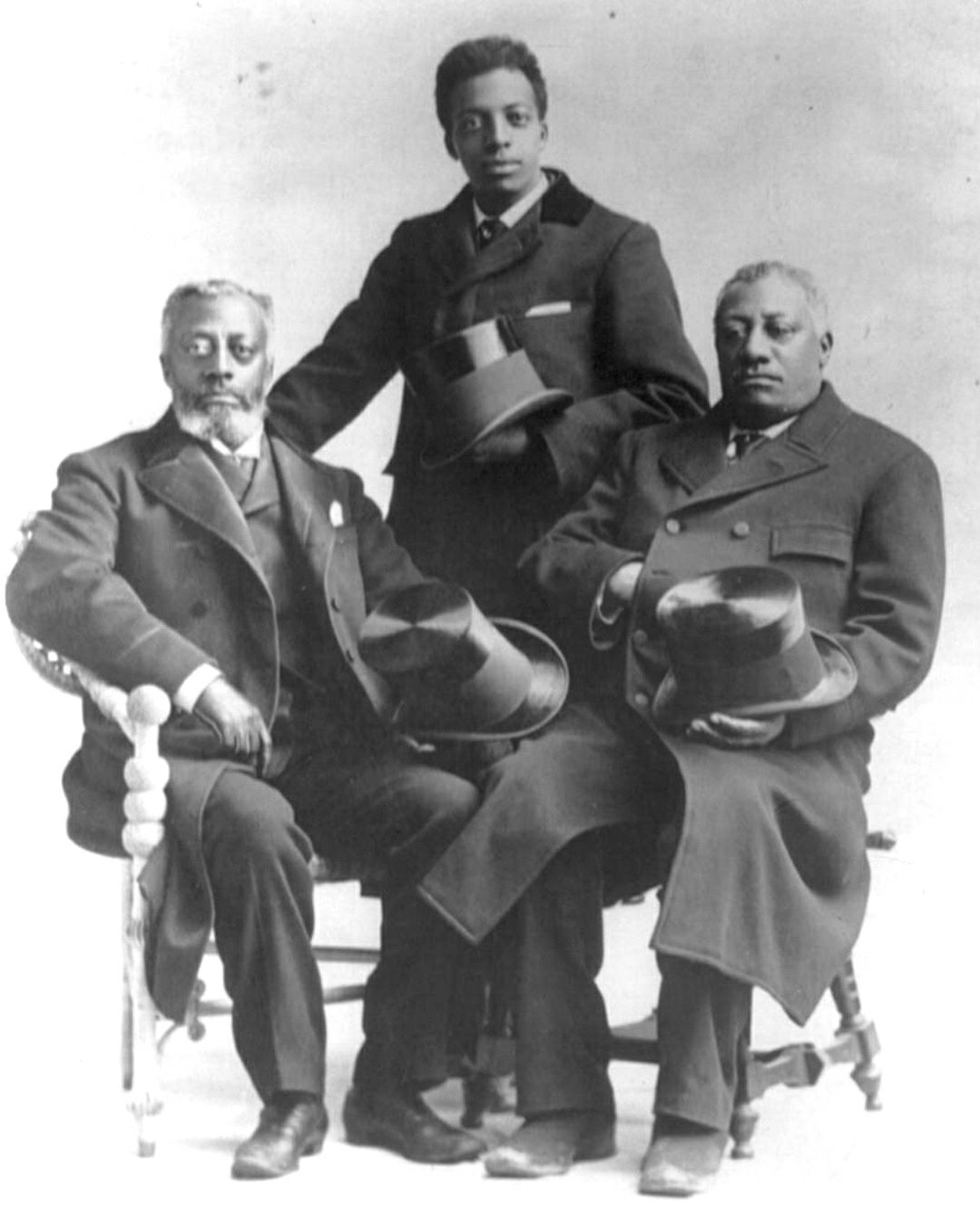Washington City
District of Columbia
1960 moved to National Harmony Memorial Park Cemetery Hyattsville,Prince George's County, Maryland
Washington Bee (Washington, DC) Saturday, Sept 26, 1908, Volume XXIX, Issue 17, page 4
Death of Lewis H. Douglass, Journalist, Printer, and Soldier. A Brilliant Record
Lewis Henry Douglass, eldest son of the late Hon. Frederick Douglass, whose death occurred Saturday morning last at his late residence 2002 17th Street, N. W., was born in New Bedford, Mass, Oct 9, 1840. Several years later the family moved to Lynn Mass., and then to Rochester, N.Y., where Lewis entered the public school of that city. At the age of sixteen he entered his father's printing office, and began to learn the printing trade.
The foreman of the office was a Scotchman, but after completing his trade, Lewis became foreman.
At the time of the capture of old John Brown, his father having suddenly to flee to England, Lewis took full charge of his father's extensive business though only nineteen years of age.
In 1863, he was teaching a school New Jersey, but when he learned that his younger brother Charles had enlisted in the 54th Infantry, he immediately resigned from this school and enlisted in the same regiment, becoming its Sergeant Major. He took part in the famous assault on Fort Wagner, where his Colonel, Robt. G. Shaw, and several hundred of the enlisted men fell. He was disabled at that time, and a year later was discharged for disability.
After the war he went across the continent seeking his fortune, and finally located in Denver, Colorado. He was employed as a compositor on the Denver News, a Democratic paper. He was forced out of that job by the "Union." He then came to Washington, and was appointed the first of his race a compositor in the Government Printing Office, and was later promoted to proof reader, but during all this time the typographical Union No. 101, of this city, was making a spirited war upon the Public Printer, Hon. A. M. Clapp, for his (Douglass') removal. This was under the administration of President Grant, who visited the office during Douglass' employment there and urged him to "stick," and he did stick; the "Union" for its own safety being obliged to open its doors to colored membership, though Douglass was made the target for the bitterest and most cowardly kind of intimidation. Threats of death, cross bones and skulls, and every other means to force him out were employed, but he would not surrender. Thus he opened the way for many others of his race who have since found employment there.
He afterwards began the publication of the New National Era. He was Editor-in Chief. This paper was the largest enterprise in the printing business ever undertaken by colored men, and the paper itself was the largest colored weekly ever published by colored men. They had their own steam presses, and all the matter printed was original matter. The paper was ably edited and conducted, but the race at that time did not measure up to the importance of such a Journal, and for lack of support it had to be suspended. Over ten thousand dollars was sunk in this enterprise.
Douglass was also a member of the Upper House in the District of Columbia Territorial Government. He took a deep interest in the organization of our present Public School system. He made a steady fight for the best that was to be had for our schools, and up to the day of his death he took a deep interest in them.
He was at one time Deputy U. S. Marshal for the District of Columbia, and at another, inspector for the Post Office Department.
Before the war he was an able support to his father, and father-in-law, the late Bishop J. W. Loguen, in docuting fugitive slaves into Canada, via the Under-ground Railroad. In politics he was a straight out Republican. He had hosts of friends in every walk of life, and especially among the younger set.
He was passionately fond of children, and children took a great liking to him, though he had none of his own.
He leaves a widow, and brother Major Charles R Douglass who is the last survivor of Frederick Douglass' family.
During Mr. Douglass' long illness he had the devoted care and attention of a loving wife, ably assisted by her neice, Miss Kathryn Crummell, who from her early youth has been a member of her Uncle Lewis' family. Interment at Harmony Cemetery.
Washington City
District of Columbia
1960 moved to National Harmony Memorial Park Cemetery Hyattsville,Prince George's County, Maryland
Washington Bee (Washington, DC) Saturday, Sept 26, 1908, Volume XXIX, Issue 17, page 4
Death of Lewis H. Douglass, Journalist, Printer, and Soldier. A Brilliant Record
Lewis Henry Douglass, eldest son of the late Hon. Frederick Douglass, whose death occurred Saturday morning last at his late residence 2002 17th Street, N. W., was born in New Bedford, Mass, Oct 9, 1840. Several years later the family moved to Lynn Mass., and then to Rochester, N.Y., where Lewis entered the public school of that city. At the age of sixteen he entered his father's printing office, and began to learn the printing trade.
The foreman of the office was a Scotchman, but after completing his trade, Lewis became foreman.
At the time of the capture of old John Brown, his father having suddenly to flee to England, Lewis took full charge of his father's extensive business though only nineteen years of age.
In 1863, he was teaching a school New Jersey, but when he learned that his younger brother Charles had enlisted in the 54th Infantry, he immediately resigned from this school and enlisted in the same regiment, becoming its Sergeant Major. He took part in the famous assault on Fort Wagner, where his Colonel, Robt. G. Shaw, and several hundred of the enlisted men fell. He was disabled at that time, and a year later was discharged for disability.
After the war he went across the continent seeking his fortune, and finally located in Denver, Colorado. He was employed as a compositor on the Denver News, a Democratic paper. He was forced out of that job by the "Union." He then came to Washington, and was appointed the first of his race a compositor in the Government Printing Office, and was later promoted to proof reader, but during all this time the typographical Union No. 101, of this city, was making a spirited war upon the Public Printer, Hon. A. M. Clapp, for his (Douglass') removal. This was under the administration of President Grant, who visited the office during Douglass' employment there and urged him to "stick," and he did stick; the "Union" for its own safety being obliged to open its doors to colored membership, though Douglass was made the target for the bitterest and most cowardly kind of intimidation. Threats of death, cross bones and skulls, and every other means to force him out were employed, but he would not surrender. Thus he opened the way for many others of his race who have since found employment there.
He afterwards began the publication of the New National Era. He was Editor-in Chief. This paper was the largest enterprise in the printing business ever undertaken by colored men, and the paper itself was the largest colored weekly ever published by colored men. They had their own steam presses, and all the matter printed was original matter. The paper was ably edited and conducted, but the race at that time did not measure up to the importance of such a Journal, and for lack of support it had to be suspended. Over ten thousand dollars was sunk in this enterprise.
Douglass was also a member of the Upper House in the District of Columbia Territorial Government. He took a deep interest in the organization of our present Public School system. He made a steady fight for the best that was to be had for our schools, and up to the day of his death he took a deep interest in them.
He was at one time Deputy U. S. Marshal for the District of Columbia, and at another, inspector for the Post Office Department.
Before the war he was an able support to his father, and father-in-law, the late Bishop J. W. Loguen, in docuting fugitive slaves into Canada, via the Under-ground Railroad. In politics he was a straight out Republican. He had hosts of friends in every walk of life, and especially among the younger set.
He was passionately fond of children, and children took a great liking to him, though he had none of his own.
He leaves a widow, and brother Major Charles R Douglass who is the last survivor of Frederick Douglass' family.
During Mr. Douglass' long illness he had the devoted care and attention of a loving wife, ably assisted by her neice, Miss Kathryn Crummell, who from her early youth has been a member of her Uncle Lewis' family. Interment at Harmony Cemetery.
Family Members
Sponsored by Ancestry
Advertisement
Advertisement
